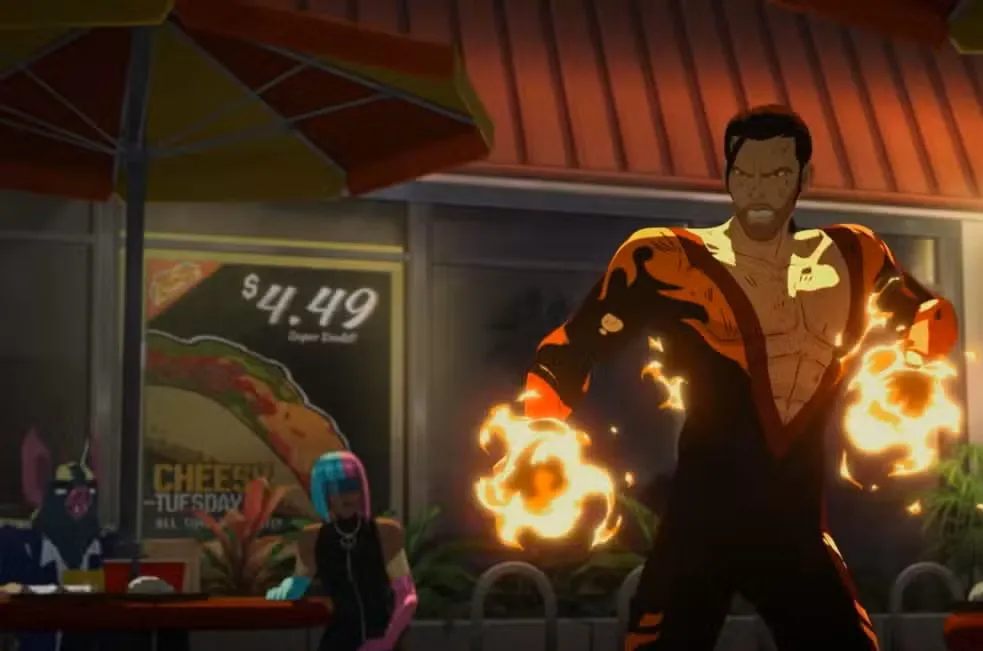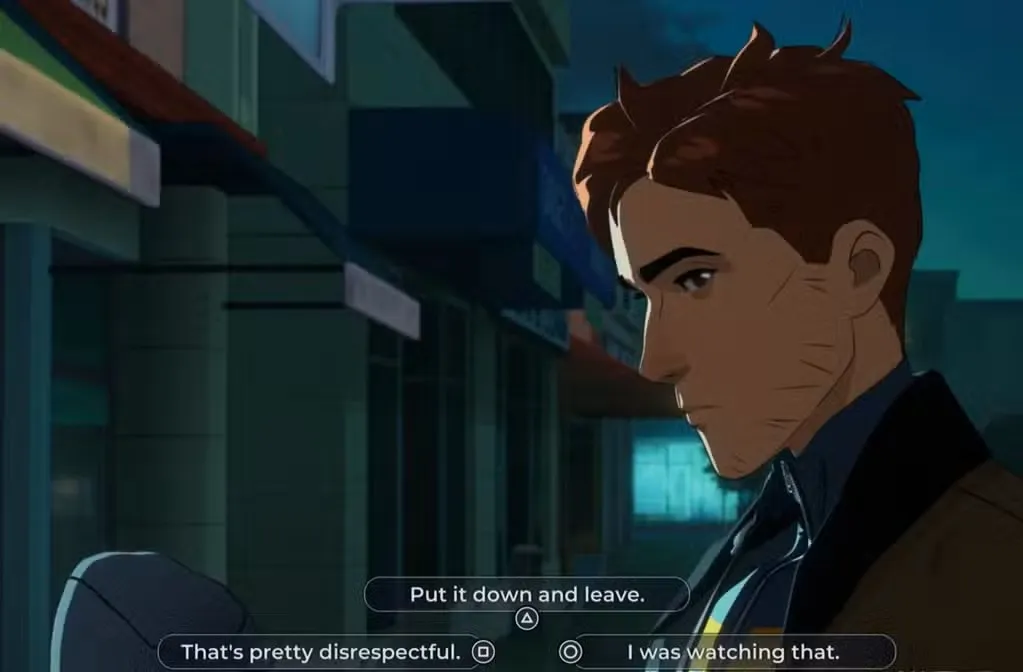Introduction: Building a Team from Broken Pieces
Episode 3 of Dispatch shifts gears dramatically. If Episode 2 was about learning the ropes, Episode 3 is about managing absolute chaos. Robert’s new mission? Transform a group of dysfunctional, sabotage-prone heroes into an actual functioning team—all while knowing one of them will be cut from the Phoenix Program.
No pressure, right?
This episode has fewer dialogue choices compared to previous episodes, but the ones that exist carry serious weight. You’ll also face multiple dispatching sequences where heroes actively work against each other, making your job significantly harder. And at the end? You’ll make a decision that permanently removes someone from the team.
What Makes Episode 3 Different:
- Heroes sabotaging each other during calls
- Team-building choices that define your leadership style
- The most consequential decision in the series so far
- Achievement opportunities tied to your final choice
Let’s break down every decision and help you navigate this powder keg of a workplace.
Moving Day: Bonding with Royd
The episode opens with Robert and Royd packing up all of Robert’s Mecha Man memorabilia. It’s a quiet, character-building moment before everything goes sideways.
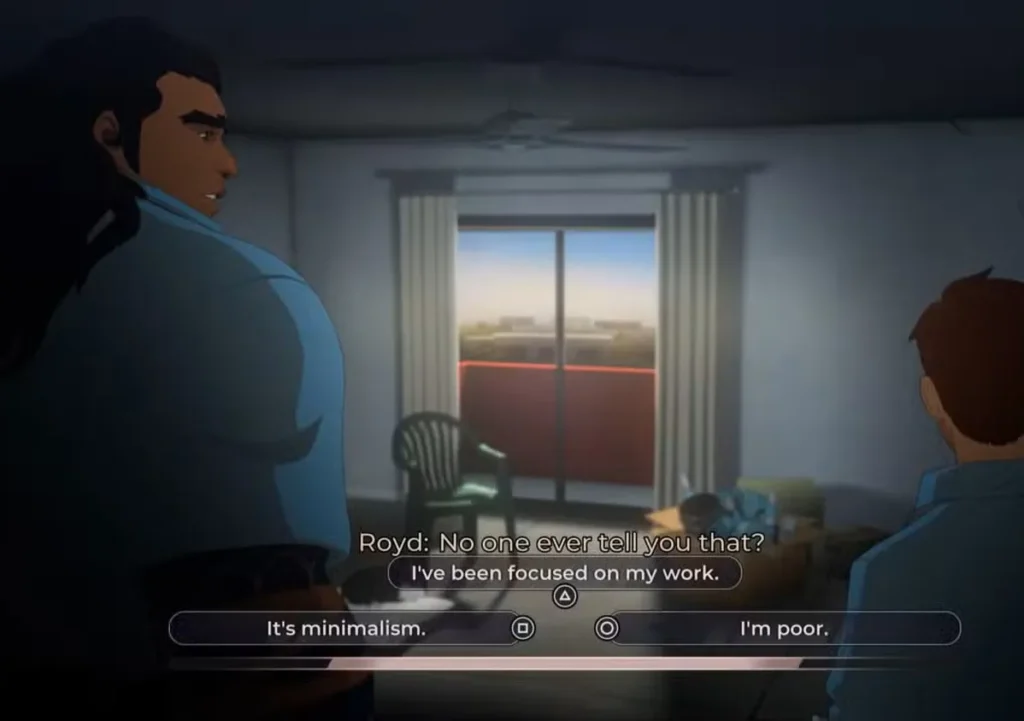
At the Apartment
Your first dialogue choice happens while boxing things up:
- “It’s minimalism”
- “I’ve been focused on my work”
- “I’m poor”
Does this choice matter? Nope. Pure character flavor. Pick whatever matches your Robert’s personality—though “I’m poor” is refreshingly honest for a former superhero.
At the Office (Royd’s Project)
Royd starts explaining some technical project he’s working on:
- “Sounds pretty important”
- “I didn’t get any of that”
- “Can you recreate it?”
Does this choice matter? Not mechanically. These responses just acknowledge how much (or little) you understand about Royd’s tech babble. If you want to role-play an interested friend, go with the first or third option. If you’re being honest about the technobabble? Option two is perfect.
The Phone Drop: First Impressions with Golem
While carrying your dog to your workstation, Golem accidentally bumps into you, causing you to drop your phone. This is your first real interaction with Golem, and it sets the tone for your entire relationship.
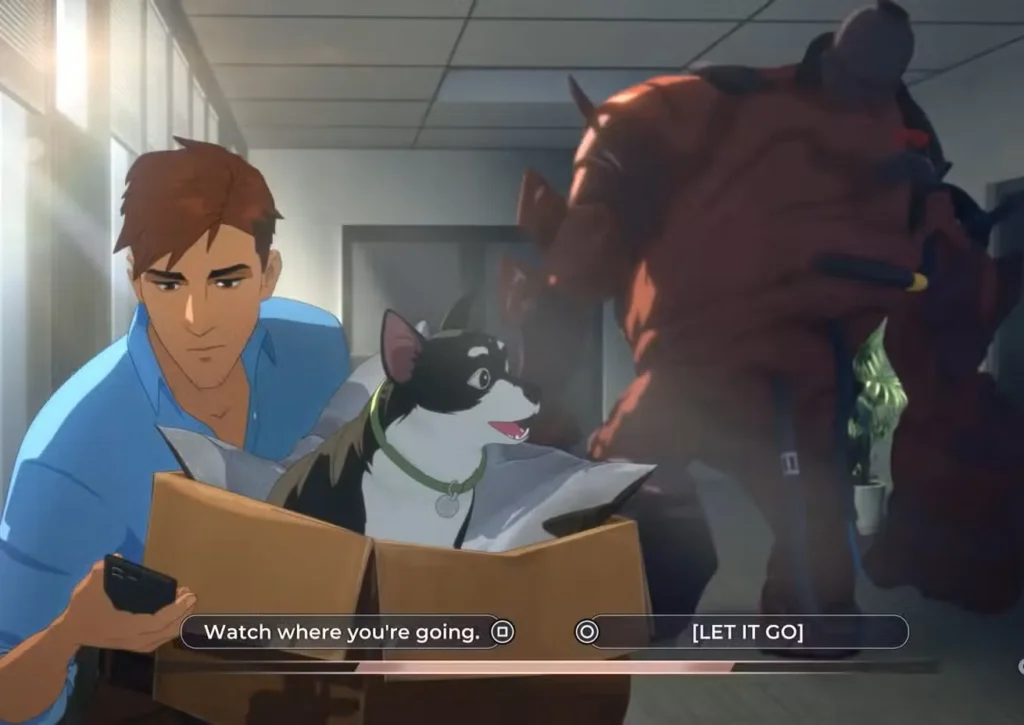
The Choice That Golem Remembers
- “Watch where you’re going” – Confrontational approach
- “LET IT GO” – Forgiving approach
Does this choice matter? YES. The game explicitly states that Golem will remember this. Given what happens later in the episode (spoiler: there’s a major choice involving Golem), this early interaction could influence how that moment feels narratively.
Our Take: Golem is clearly dealing with a lot—everyone in the Phoenix Program is. “Let it go” shows you’re willing to give second chances, which feels thematically appropriate for someone trying to build a team. However, if you’re playing Robert as more authoritative or frustrated, the first option is justified too. It was an accident, but it’s also the second time in as many episodes that someone has messed with your equipment.
Meeting with Blond Blazer: The Phenomaman Aftermath
After leaving your dog with Chase (good luck, buddy), you follow Blond Blazer into a private room. She brings up the dinner with Phenomaman from the previous episode—apparently, things didn’t go well.
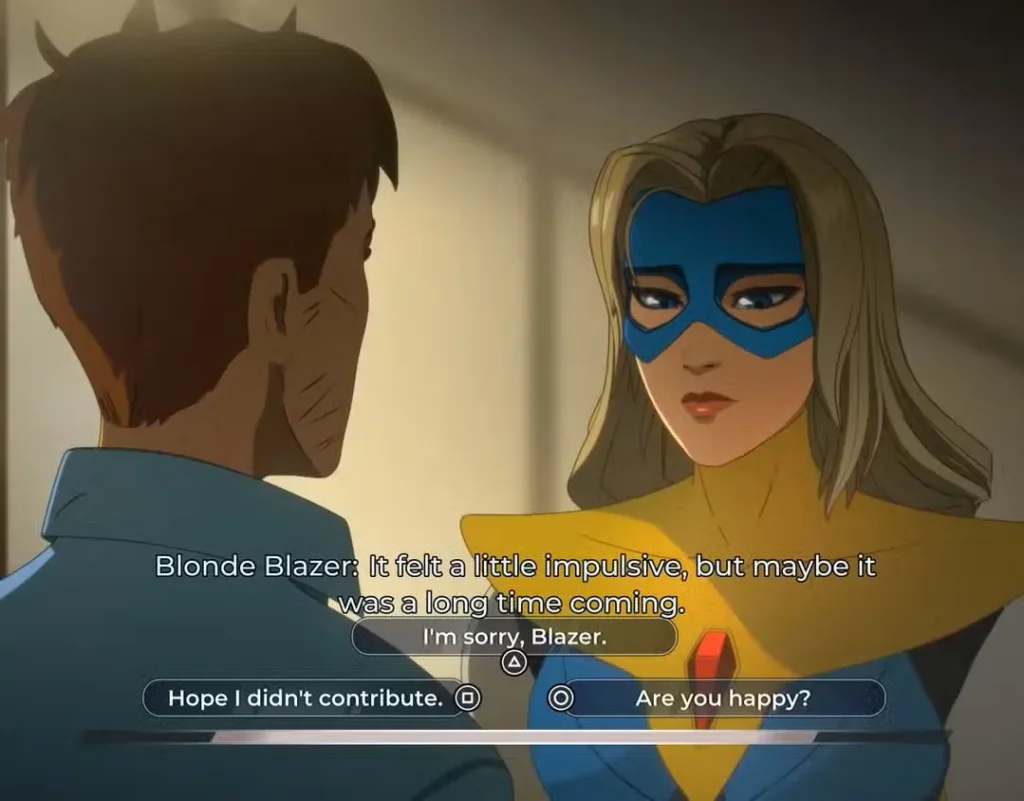
First Dialogue Choice (Relationship Impact!)
- “Hope I didn’t contribute”
- “I’m sorry, Blazer” – ✅ Increases relationship with Blond Blazer
- “Are you happy?”
Does this choice matter? Absolutely. If you’ve been following our guides, you know that maintaining a good relationship with Blond Blazer opens up different dialogue options throughout the series. The apology shows empathy and acknowledges that you might have played a part in whatever went wrong.
Pro Tip: “Are you happy?” can come across as dismissive or even confrontational, depending on tone. If you want to keep things positive with Blond Blazer, go with the apology.
Second Dialogue Choice (About Her New Look)
Blond Blazer will show you or mention something about a change (likely her appearance or approach):
- “I like it” – ✅ Increases relationship with Blond Blazer
- “It’ll scare them” – No change in relationship
- “You sure about that?” – ❌ Decreases relationship with Blond Blazer
Does this choice matter? Yes, for relationship building. This is pretty straightforward—positive support increases the relationship, neutral observation changes nothing, and questioning her judgment decreases it.
Our Analysis: Unless you’re deliberately playing Robert as someone who questions authority, “I like it” is the safe choice. Blond Blazer is dealing with her own struggles, and support from her team matters.
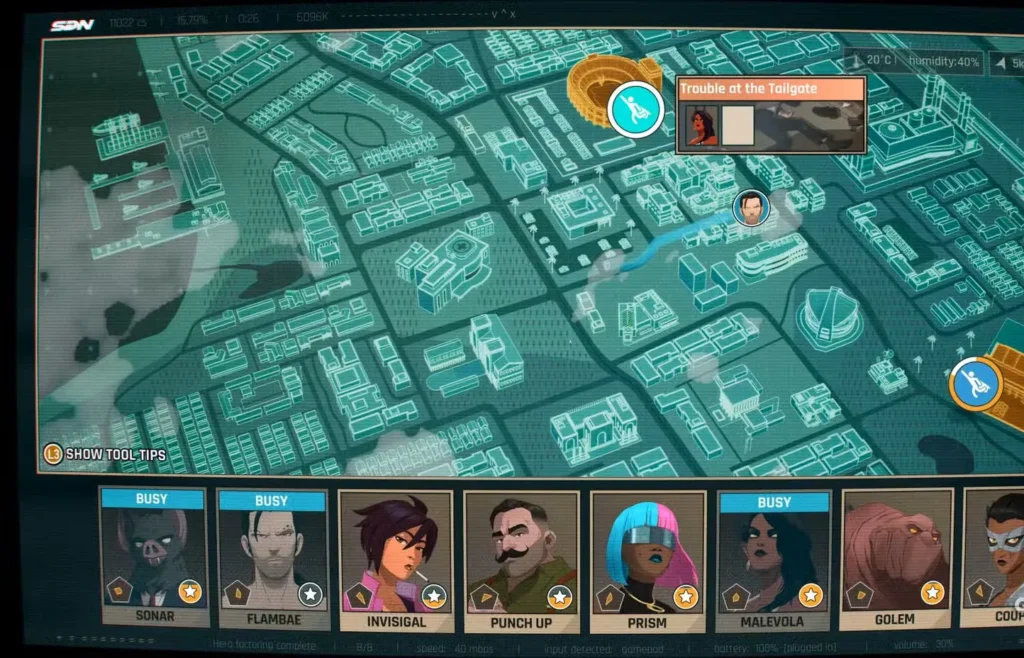
First Dispatch Shift: Welcome to Sabotage City
Now we get to the meat of Episode 3. You sit down at your workstation for what should be a normal shift, but there’s a massive problem: everyone knows one of them is getting cut from the Phoenix Program.
The Sabotage Mechanic
This changes everything. Heroes will actively sabotage each other if you send them on calls together. You’ll see:
- Heroes refusing to cooperate
- Deliberate interference with each other’s actions
- Calls failing due to interpersonal conflicts
But here’s the key: You can still make calls successful by choosing the right intervention options when sabotage occurs. The game gives you choices during critical moments to redirect the situation and prevent injuries.
Dispatching Tips for Episode 3:
- Pay extra attention to hero compatibility (even more than usual)
- Watch for tension indicators between specific characters
- Be ready to make quick decisions during calls to prevent sabotage
- Prioritize keeping heroes safe over mission success if you must choose
XP Management: Successfully navigating sabotage situations and completing calls still earns XP. This XP contributes to skill points that can be crucial for future episodes. For a detailed breakdown of all hero abilities and how to maximize them, check our complete heroes guide.
The Team Meeting: Your Leadership Moment
After the disastrous first shift, everyone gathers in the meeting room. The tension is palpable. This is where Robert needs to step up as a leader and address the elephant in the room.
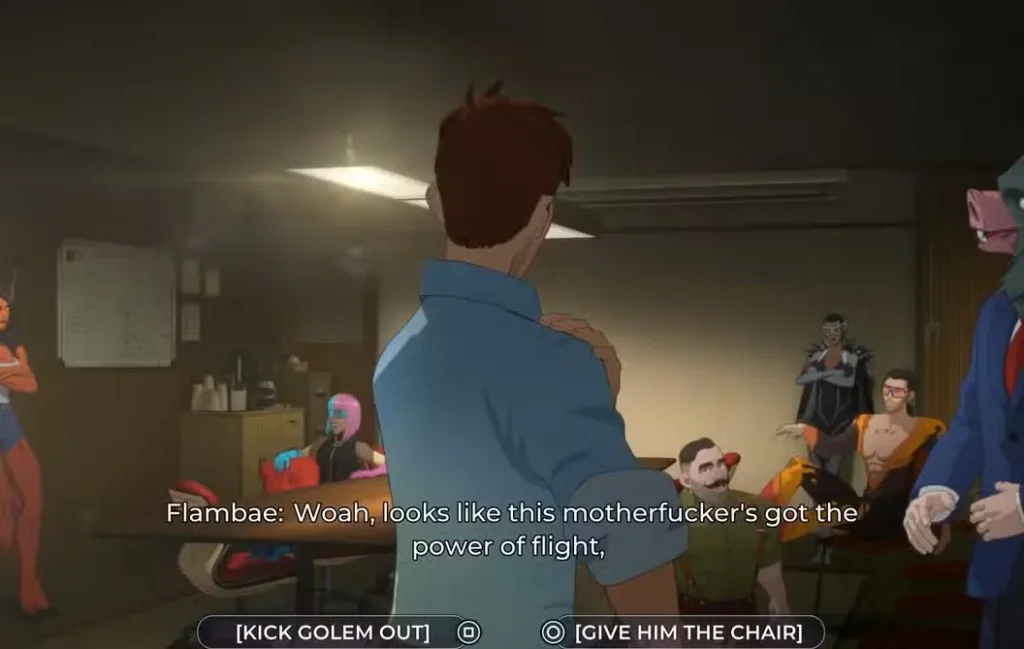
The Golem Chair Incident
Golem needs a chair (likely due to his physical form/size), and you get to decide how to handle it:
- “KICK GOLEM OUT” – ❌ Decreases relationship with Golem
- “GIVE HIM THE CHAIR” – ✅ Increases relationship with Golem
Does this choice matter? VERY MUCH. This is a major relationship moment with Golem, and given that he’s potentially on the chopping block later, how you treat him here matters both mechanically and narratively.
Our Take: Kicking Golem out of his own chair is needlessly cruel. He’s already struggling, everyone’s already on edge, and this would just pour gasoline on the fire. Give him the chair. It’s a small gesture that shows you see him as part of the team.
Your Leadership Speech: Part 1
Now you need to address what everyone’s feeling. What binds this team together?
- “Potential”
- “Pain”
- “Fear”
Does this choice matter? All choices lead to the same immediate outcome, but the game notes that this will be remembered. This is about defining your leadership philosophy.
Our Analysis:
- “Potential” – Optimistic, forward-looking. “We’re all capable of more.”
- “Pain” – Realistic, acknowledging shared trauma. “We’re bonded by what we’ve been through.”
- “Fear” – Dark but honest. “We’re all afraid of the same things.”
There’s no wrong answer here, but “Potential” feels most appropriate for someone trying to build a team. “Pain” is more realistic but potentially demotivating. “Fear” is brutally honest but might not inspire confidence.
Your Leadership Speech: Part 2 (The Phoenix Metaphor)
Time to bring it home with a metaphor about the Phoenix Program itself:
- “You set this program on fire”
- “You’re all burnt sh*t”
- “All of you are Phoenixes”
Does this choice matter? Again, same immediate outcome, but this will be remembered. This is your thesis statement as a leader.
Our Analysis:
- “You set this program on fire” – Accusatory. Places blame on the team.
- “You’re all burnt sh*t” – Self-deprecating humor? Or just mean? Risky choice.
- “All of you are Phoenixes” – Inspirational. “You can rise from the ashes.”
For a narrative-driven game like Dispatch, the Phoenix metaphor is clearly the intended “good” choice. It’s why the program is called Phoenix in the first place. This option reframes their failures as opportunities for rebirth rather than permanent damage.
Recommended Combo: “Potential” + “All of you are Phoenixes” creates a cohesive, inspiring message that acknowledges struggle while pointing toward hope.
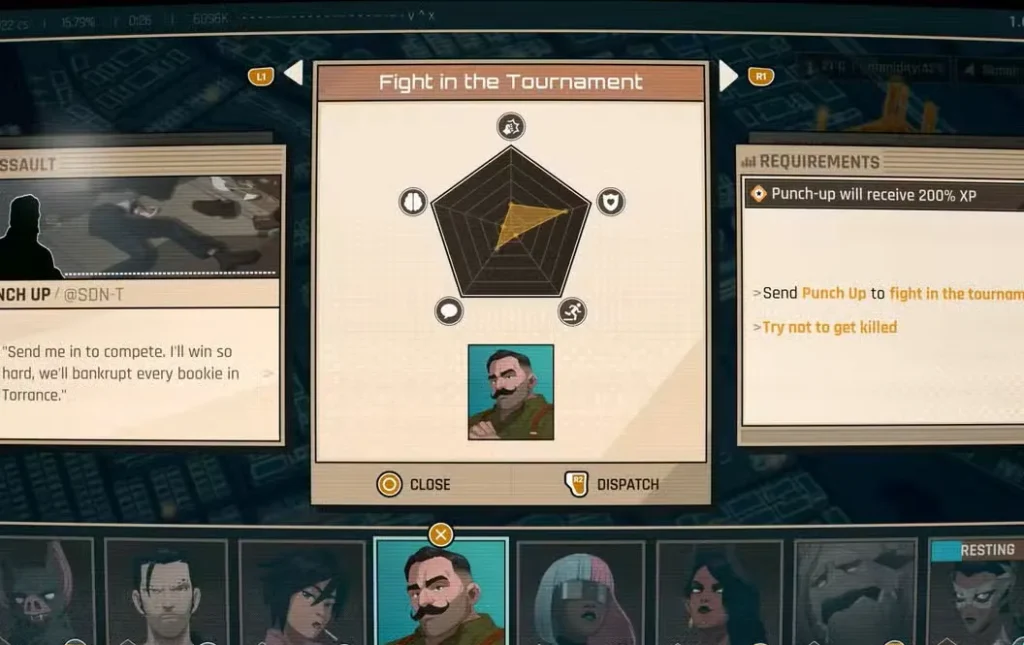
Second Dispatch Shift: A New Team
After your speech, you start another shift. And something’s changed—the team is actually cooperating now. Your leadership worked (at least temporarily).
The Tournament Call (Punch Up Special)
During this shift, you’ll get a tournament-related call. If you send Punch Up and he succeeds:
- You’ll earn additional XP for him
- Punch Up will remember this
Pro Tip: This is a limited opportunity to boost Punch Up’s effectiveness. If you’ve been investing in his abilities, this call is worth prioritizing. The extra XP could be the difference between unlocking a crucial skill or not.
Conversation with Invisigal at the Park
While Invisigal is at the park, you’ll have a conversation about fate and destiny.
First Choice (Philosophical Stance)
- “Fate is bullsh*t”
- “F*** the stars”
- “You make your own destiny”
Does this choice matter? All lead to the same outcome, but this will be remembered. This is about your philosophical outlook.
Our Take: All three options reject determinism in favor of agency, which makes sense for someone in Robert’s position—he literally chose to give up being Mecha Man to become a dispatcher. “You make your own destiny” is the most direct and empowering statement. The other two are more rebellious/angry in tone, which might resonate if you’re playing Robert as frustrated with how things have gone.
Second Choice (Handling the Situation)
- “Get one for the road”
- “Take your anger out on him”
- “This could make a difference”
Does this choice matter? No immediate impact. Pick based on how you think Invisigal should handle her current situation. The context matters here—likely someone’s bothering her or she’s confronting something.
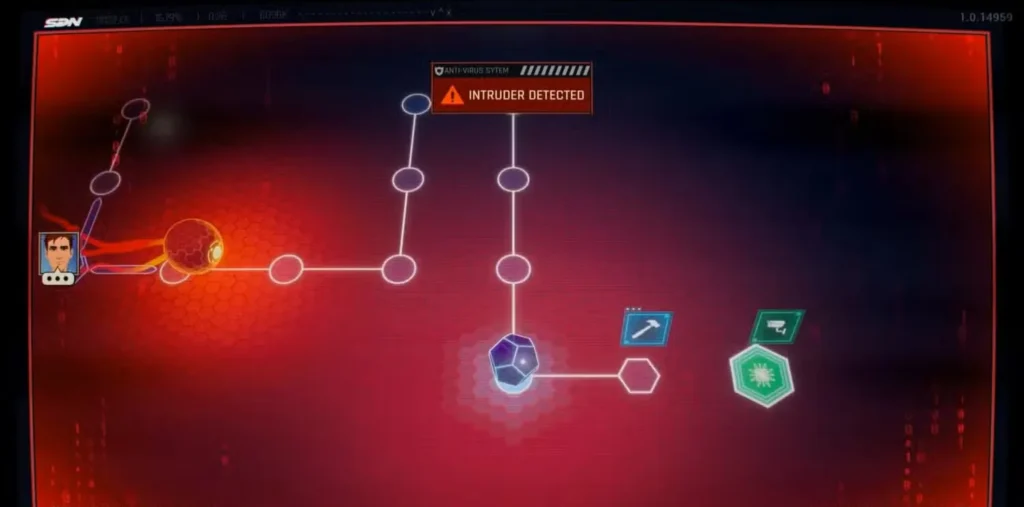
The Triple Hacking Sequence: Ultimate Challenge
Here comes the hardest gameplay sequence in the episode. While a jewelry store is being robbed, you need to complete three consecutive hacking sequences.
What’s New: Antiviruses
This isn’t like the simple hack from Episode 2. Now antiviruses spawn that follow you around, making it significantly harder to complete the hack.
Hacking Tips:
- Plan your route before moving
- Antiviruses follow predictable patterns—learn them
- Speed matters, but accuracy matters more
- If you fail one sequence, you might still complete the others
The Payoff: If you successfully complete all three hacking sequences, Invisigal will remember this. Given the difficult choice coming at the end of this episode, having Invisigal remember your clutch performance could matter.
Achievement Note: Successfully completing challenging sequences like this often ties into achievements and trophies. Push yourself to succeed here.
The Celebration: Back at the Office
You make it back to the office, and everyone’s celebrating. Invisigal caught the perp! The team is actually functioning! It’s a rare moment of genuine success in the Phoenix Program.
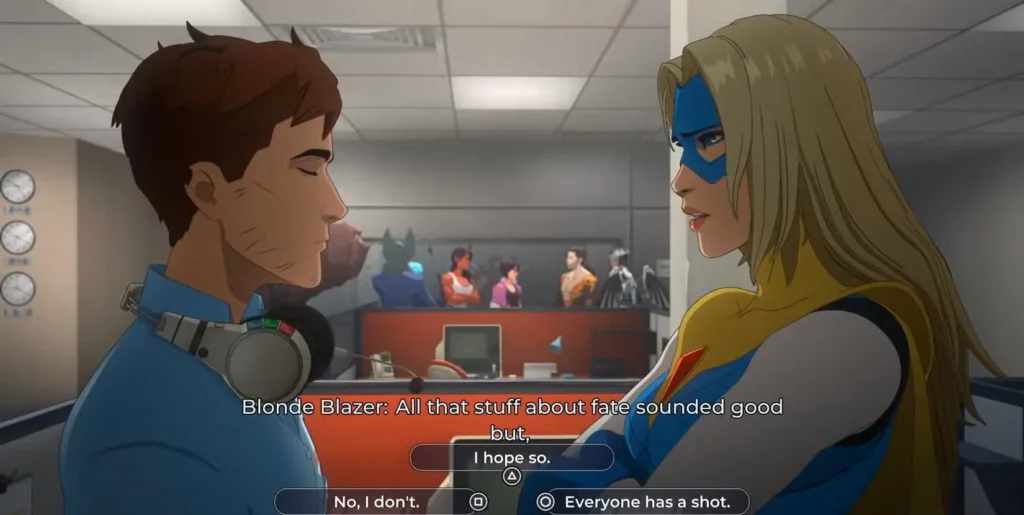
Conversation with Blond Blazer
During the celebration, you talk with Blond Blazer about the team’s future:
- “No, I don’t”
- “I hope so”
- “Everyone has a shot”
Does this choice matter? The outcome is the same, but Blond Blazer will remember this. This is about optimism versus realism.
Context: She’s likely asking if you think this success will last, or if everyone can make it through the program. Your answer reveals your outlook.
Our Take: “Everyone has a shot” balances hope with realism—you’re not guaranteeing success, but you’re not writing anyone off either. It feels appropriate for someone who just spent an entire shift managing sabotage and gave an inspiring speech about phoenixes rising.
The Final Decision: Who Gets Cut?
And now we arrive at the moment the entire episode has been building toward. Blond Blazer takes you into the office for a private conversation, and here’s the twist: it’s not Invisigal getting cut.
Instead, you have to choose between:
- Sonar
- Coupe
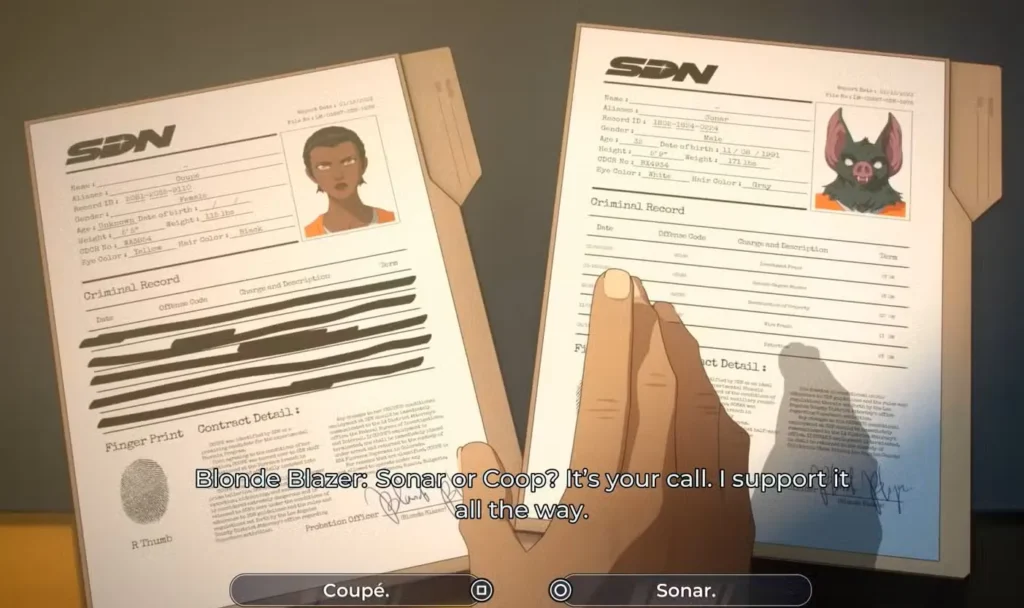
Why This Decision Matters
This isn’t just a dialogue choice—this permanently removes someone from the team. Whomever you pick is gone from the Phoenix Program, and presumably from future episodes (or at least their role is significantly diminished).
Achievement Impact: Both choices offer a different Silver-tier Achievement/Trophy. If you’re a completionist, you’ll need to replay the episode to get both.
Making Your Choice: Sonar vs. Coupe
Let’s break down what we know about each character and what might inform your decision:
Considerations for Cutting Sonar:
- How has Sonar performed during calls?
- What’s your relationship like with Sonar?
- How has Sonar contributed to team dynamics?
Considerations for Cutting Coupe:
- How effective has Coupe been in the field?
- Has Coupe been cooperative or problematic?
- What unique abilities does Coupe bring?
The Harsh Reality: There’s no “right” answer here. Both are struggling heroes trying to make it work. You’re essentially deciding who gets another chance and who doesn’t.
Our Analysis
This choice is deliberately difficult because it forces you to engage with the central theme of Dispatch: you have power over people’s lives and careers, and sometimes there are no good options.
If you’re achievement hunting: Pick one choice for your first playthrough, then replay the episode for the other trophy. The episode release schedule means you have time to replay before the next episode drops.
If you’re playing for story: Consider who had the most meaningful moments with Robert during this episode. Who responded better to your leadership? Who showed more growth? Let that guide you.
Pro Tip: Before making this choice, think about how this decision will make you feel as a player. Dispatch is explicitly designed to put you in uncomfortable positions. There’s no shame in choosing based on which outcome you can live with, rather than trying to optimize for some “best” ending.
Episode 3 Complete: Leadership Defined
Episode 3 ends after your decision. As usual on Dispatch (available on PlayStation) and other platforms, you’ll see how your choices stacked up against the community. The final decision will likely show a fairly even split—evidence that the developers designed a genuine dilemma.
Key Takeaways from Episode 3
Choices That Actually Matter:
- Whether you forgive Golem for the phone incident
- Your responses to Blond Blazer (multiple relationship impacts)
- Giving Golem the chair or kicking him out
- Your leadership philosophy (remembered for later)
- Successfully completing the triple hack sequence
- Who you cut from the team (MAJOR DECISION)
Choices That Are Just Flavor:
- Most casual conversation with Royd
- Some dialogue options about fate and destiny
Gameplay Skills to Master:
- Managing sabotaging heroes during calls
- Advanced hacking with antiviruses
- Strategic dispatching when team cooperation is low
What This Episode Reveals
Episode 3 is where Dispatch stops being about learning systems and starts being about the moral weight of your role. You’re not just matching heroes to calls anymore—you’re shaping lives, managing conflicts, and making decisions that permanently affect people’s futures.
The sabotage mechanic brilliantly illustrates what happens when a workplace becomes toxic. Everyone’s so focused on survival that cooperation becomes impossible. Your job is to cut through that and remind people why they’re there in the first place.
And then, after all that work building the team, you have to cut someone anyway.
That’s the game.
Looking Ahead
Episode 3 sets up some major questions for future episodes:
- How will the team dynamics change after losing Sonar or Coupe?
- Will your cut hero return in some capacity?
- How will your leadership philosophy choices pay off?
- What happens to the hero you saved?
The Phoenix Program is clearly building toward something bigger, and Episode 3 feels like the end of the “learning phase.” From here on out, the stakes are only going to get higher.
Preparing for Episode 4:
- Review your relationship statuses with all remaining heroes
- Consider how your leadership style has evolved
- Think about which heroes you’ve invested XP into
- Remember who “will remember” what you did
Tips for Replaying Episode 3
If you want to experience the alternate path or grab that second achievement:
- Try the opposite final decision (Sonar vs. Coupe)
- Experiment with different leadership philosophies to see how dialogue changes
- Deliberately send different hero combinations during dispatch to see all sabotage scenarios
- Challenge yourself with the triple hack if you struggled the first time
- Make different relationship choices with Blond Blazer to see how it affects future dialogue
Episode 3 has surprising replay value because the team dynamics can play out very differently depending on your early choices.
Final Thoughts
Episode 3 “Phoenix Rising” lives up to its name. It’s about taking broken, burnt pieces and trying to forge them into something functional. Sometimes you succeed. Sometimes you have to make impossible choices.
The writing shines here because it doesn’t let you off the hook. There’s no “perfect dispatcher” option where everyone loves you and nobody gets hurt. Leadership is messy. Team building is hard. And sometimes, despite your best efforts, someone still gets left behind.
That’s what makes Dispatch special among narrative games—it’s willing to sit with that discomfort instead of offering easy solutions.
Now go forth and lead your team of dysfunctional heroes to glory. Or at least to survival.
They’re counting on you.
Which hero did you cut from the team? Do you regret it? Share your Episode 3 experience in the comments below!

